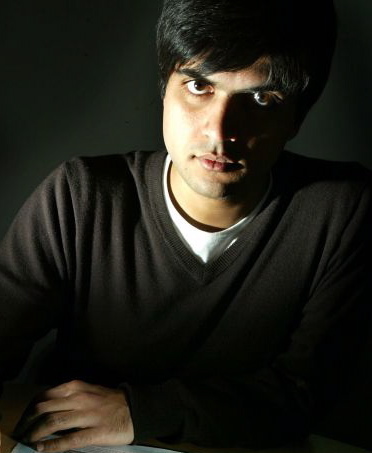Enemies of science
In Madras but I thought it worthwhile to write a few lines. The retreating monsoon makes it very sticky here in the afternoons, the warmth sort of creeps up on you. Heading up to a hill station in a couple of days but, while I have an internet connection, thought I'd update the blog with a coment piece that ran in the Guardian just after I left England.
About Tony Blair's recent speech on science (described in more detail below) I wanted to ask some questions about his government's attitude to science. In effect, they pick and choose their evidence and which bits of science they like and which they don't. So Tony Blair wants to be a science evangelist? In a recent speech in Oxford, he outlined his plan to stand up for science and face down those who distort and undermine it. He singled out animal rights extremists and people who cause confusion over MMR and GM technology.
But encouraging scientific progress is not just about giving good PR to new gadgets or cures. Most important is protecting the principle of free inquiry, something on which he and his government are way behind. His call for politicians to stand up for science belies the fact that his own administration systematically attacks this basic principle.
The biggest threat to science doesn't come from a mother scared of what the MMR jab might do to her child, or the extremist who burns down farms in solidarity with research animals. It comes from those who claim to respect the way science creates knowledge, but then misinterpret, distort or ignore that knowledge.
On the surface, scientists might seem to have little to worry about. Starved of prestige and money by successive Tory governments, they have seen labs rebuilt and reputations renewed under Labour. Blair talked of having trouble with science in his early years until a Damascene conversion left him "fascinated by scientific process, its reasoning, deduction and evidence-based analysis; inspired by scientific progress; and excited by scientific possibility".
But last week the conclusions of the Commons science committee inquiry into the government's use of scientific advice showed that his good intentions were not being mirrored by his own advisers. The report said that the government hid behind a fig leaf of scientific respectability when spinning controversial policies in a bid to make them more acceptable to voters, and it called for a "radical re-engineering" of its use of science.
Furthermore, scientists are becoming concerned at the rise of creationism in the British education system. The geneticist Steve Jones, who has lectured on evolution at schools for 20 years, says that he now regularly meets pupils who claim to believe in creationism. The creationist interpretation of fossil evidence is even encouraged in the new GCSE Gateway to Science curriculum. In August, a survey of British university students found that a third believed in either creationism or intelligent design.
At the end of the last parliamentary session, the government agency charged with licensing drugs took the remarkable decision that it would license homeopathic remedies. These glorified bottles of water can now carry details of the ailments they supposedly treat on their labels. The remedies do not need clinical trial data and peer-reviewed research to make their claims (as every modern pharmaceutical does). Scientists say the new rules are an affront to the principle of basing healthcare advice on scientific evidence.
Science is a tough master. Use this method of uncovering truth and you are not allowed to be selective about your evidence. But innovation, the technological answers to climate change, and all Blair's "glittering prizes" will come, at some point in the chain, from the basic rules of free inquiry grounded in scientific method: think of an idea, test it with experiments, draw conclusions, refine your experiments, and so on.
A forward-thinking nation loses respect for that free inquiry at its peril. Children taught to disregard evidence when trying to work out where the earth came from; a scientific agency deciding to abandon basic principles; and a government twisting research to fit its ideological message - none of that respects free inquiry. And if you don't stand up for that, you don't stand up for science.
The post got a lot of comments on the Guardian's comment is free blog, which you can read here.

